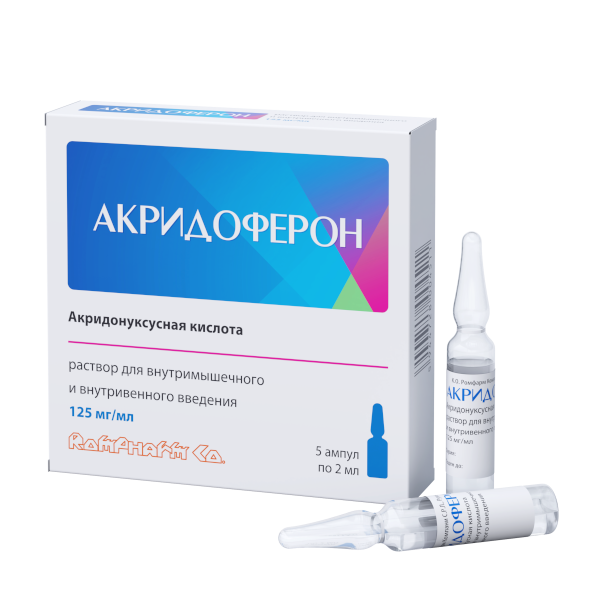
Acridoferon, 125 mg/ml, solution for injection
It is administered to adults as part of complex treatment for:
- herpesvirus infection, including cytomegalovirus;
- secondary immunodeficiencies associated with chronic bacterial and fungal infections;
- Chlamydia infection.
It is administered to children from 4 years of age as part of complex treatment for:
- herpetic infection.
Acridoneacetic acid is a low molecular weight interferon inducer, which gives it a broad spectrum of biological activity (antiviral, immunomodulatory, anti-inflammatory, etc.).
The primary interferon-producing cells after administration of acridoneacetic acid are macrophages, T lymphocytes, and B lymphocytes. Depending on the type of infection, there is a predominance of activity in a specific cellular component of the immune system.
Acridoneacetic acid induces high interferon titers in tissues and organs containing lymphoid elements (spleen, liver, lungs), activates stem cells in the bone marrow, stimulating the formation of granulocytes. Acridoneacetic acid activates T lymphocytes and natural killer cells, normalizes the balance between T-helper and T-suppressor lymphocyte subpopulations. It enhances the activity of interferon-alpha.